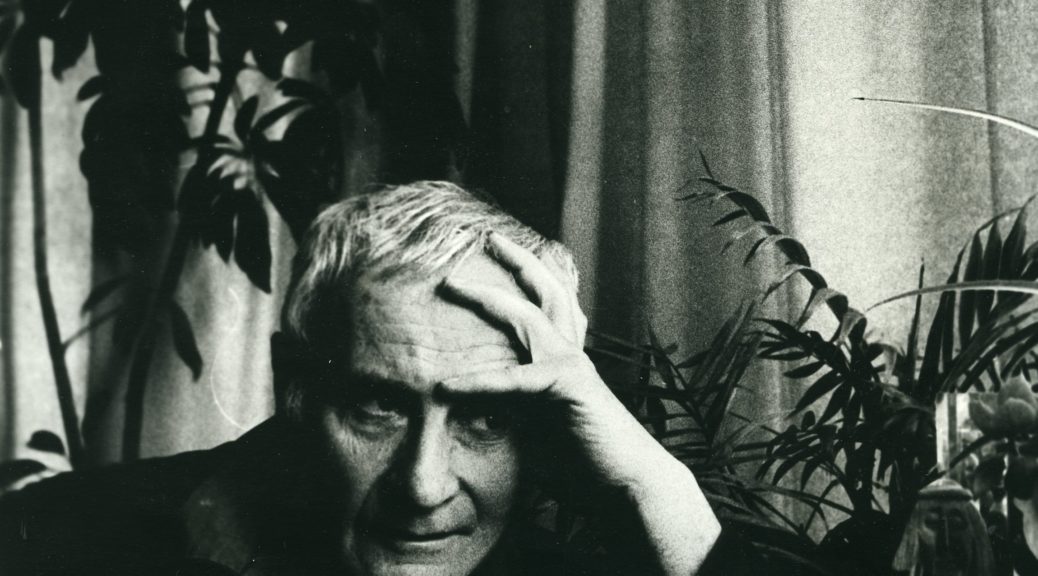LINDSAY ANDERSON, English film director, died (b. 1923) Before going into film-making, Anderson was a prominent film critic writing for the influential Sequence magazine (1947-52), which he co-founded with Gavin Lambert and Karel Reisz; later writing for the British Film Institute’s journal Sight and Sound and the left-wing political weekly the New Statesman. In one of his early and most well-known polemical pieces, Stand Up, Stand Up, he outlined his theories of what British cinema should become.
Anderson developed an acquaintance from 1950 with John Ford, which led to his writing one of the standard books on that director, About John Ford (1983). As seen in his writings, another major influence was Humphrey Jennings, the great wartime documentary film maker.
Following a series of screenings which he organized at the National Film Theater of independently-produced short films by himself, Karel Reisz and others, he developed a philosophy of cinema which found expression in what became known as the Free Cinema Movement in Britain by the late-1950s. This was the belief that the cinema must break away from its class-bound attitudes and that the working classes deserved to be seen on Britain’s screens.
Along with Karel Reisz, Tony Richardson, and others he secured funding from a variety of sources (including Ford of Britain) and they each made a series of socially challenging short documentaries on a variety of subjects.
These films, made in the tradition of British documentaries in the 1930s by such men as John Grierson, foreshadowed much of the social realism of British cinema which emerged in the 1960’s with Anderson’s own film This Sporting Life, Reisz’s Saturday Night and Sunday Morning, and Richardson’s The Loneliness of the Long Distance Runner. An interesting note from artist Joel Singer, Anderson was instrumental in helping James Broughton make The Pleasure Garden in London in 1953. They were close friends in London during the McCarthy years.
One of Anderson’s early short films, Thursday’s Child, won an Oscar for Best Documentary Short in 1954. Anderson reconnected with his roots as a documentary maker in 1985 when he chronicled the first-ever visit to China by Western pop artists Wham! in his film Foreign Skies: Wham! In China. Anderson was also a significant British theater director. He was long associated with London’s Royal Court Theatre, where he was Co-Artistic Director 1969-70, and Associate Artistic Director 1971-75, directing premiere productions of plays by David Storey, among others.
Anderson is best remembered internationally for his “Mick Travis” trilogy of feature films, all of which star Malcolm McDowell as Travis: If…, O Lucky man! and Britannia Hospital.
